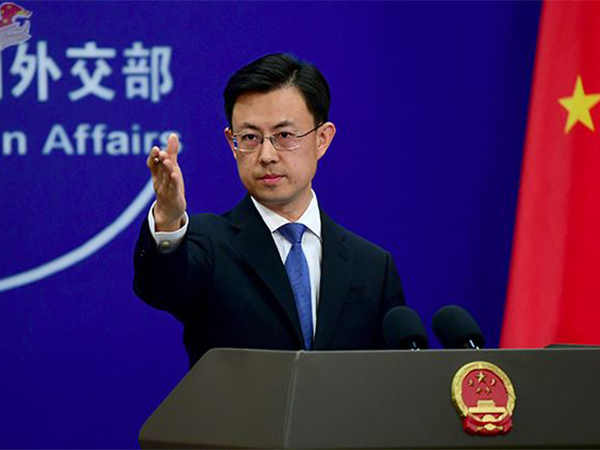NATO, G7 nations tighten noose around China
Jul 14, 2022

Washington [US], July 14 : The recent North Atlantic Treaty Organization (NATO) summit in Madrid and G7 summit held in Germany have exerted pressure on China's ambitions and "coercive policies" in the Indo-Pacific.
European leaders have grown increasingly wary of China in recent years, and those views have hardened after Beijing has refused to condemn the "Russian invasion of Ukraine," reported Global Strat View.
China has been included in NATO's "Strategic Concept," adopted at the bloc's summit in Madrid, Spain, on June 29-30 for the first time.
It lays out the security challenges facing the 30-country military alliance while outlining a course of action and suggests China's ambitions and "coercive policies" challenge the allies' interests, security, and values.
China found a special mention in both the summit's communique and the 'Strategic Concept' document. NATO's Secretary General Jens Stoltenberg remarked China is not an adversary, but it does represent serious challenges to the alliance, reported Global Strat View.
He further averred that "China's growing assertiveness and its coercive policies have consequences for the security of Allies and our partners."
The new Strategic Concept outlines NATO's transformation in line with the NATO 2030 agenda adopted at the 2021 Summit. The messaging was clear that in addition to NATO's "Euro-Atlantic" focus, the alliance is eager to expand its strategic influence in the Indo-Pacific region and tackle the emerging China challenge.
The NATO alliance members and their Indo-Pacific partners are exploring ways and areas of common interests to counter China's increasing hegemonic economic and military designs.
Those issues include cyber and hybrid threats, maritime security, counter-terrorism, and the impact of climate change on security, reported Global Strat View.
In addition to the NATO summit, the Group of Seven (G7) countries met in Germany on 26-28 June, discussing pressing geopolitical/economic issues.
They launched an infrastructure investment plan, Partnership for Global Infrastructure and Investment, to counter China's Belt and Road Initiative.
The G7 Leaders' communique mentioned China 14 times and opposed Beijing's illegal maritime activities in the East and South China Seas, human rights concerns in Hong Kong, and urged China to pressure Russia to stop its "military aggression" in Ukraine, reported Global Strat View.
The recent summits signal an increasing alignment between the US and its European partners on the China issue. Moreover, China's use of economic coercion towards other countries, particularly those in Europe, and the US' successful attempts to convince the NATO allies to speak with "one voice" against Beijing's aggressive policies have largely united the alliance.
On the other hand, China has possibly underestimated the extent to which its stance would resonate through its ties with the European countries. The relationship is already on shaky ground following European concerns over human rights abuses in Xinjiang and Hong Kong, Beijing's 'wolf warrior' diplomacy, and China's economic targeting of Lithuania over the latter's relations with Taiwan.
China has reacted aggressively against various communiques and policy statements against it. China's Mission to the European Union said in a statement that "[NATO's] Strategic Concept claims that other countries pose challenges, but it is NATO that is creating problems around the world."
The statement further noted, "We urge NATO to stop provoking confrontation by drawing ideological lines, abandon the Cold War mentality and zero-sum game approach, and stop spreading disinformation and provocative statements against China."
Meanwhile, the NATO alliance warned that Beijing is working to "subvert the rules-based international order, including in the space, cyber and maritime domains," which would have direct strategic implications for the US and its alliance partners in Europe and outside.
Although it was the first-time inclusion of China in NATO's policy document and the G-7's communique, this trend will continue in future summits as well, reported Global Strat View.


















